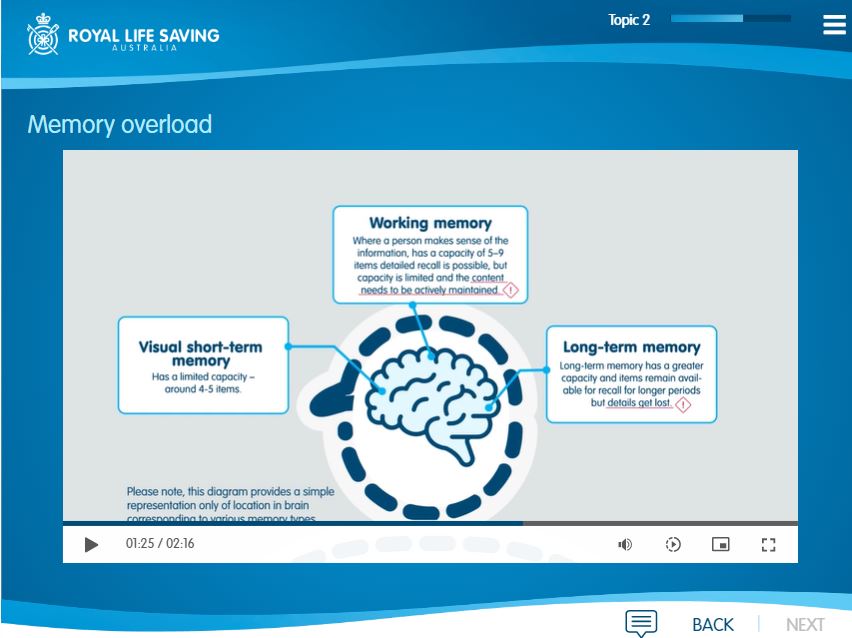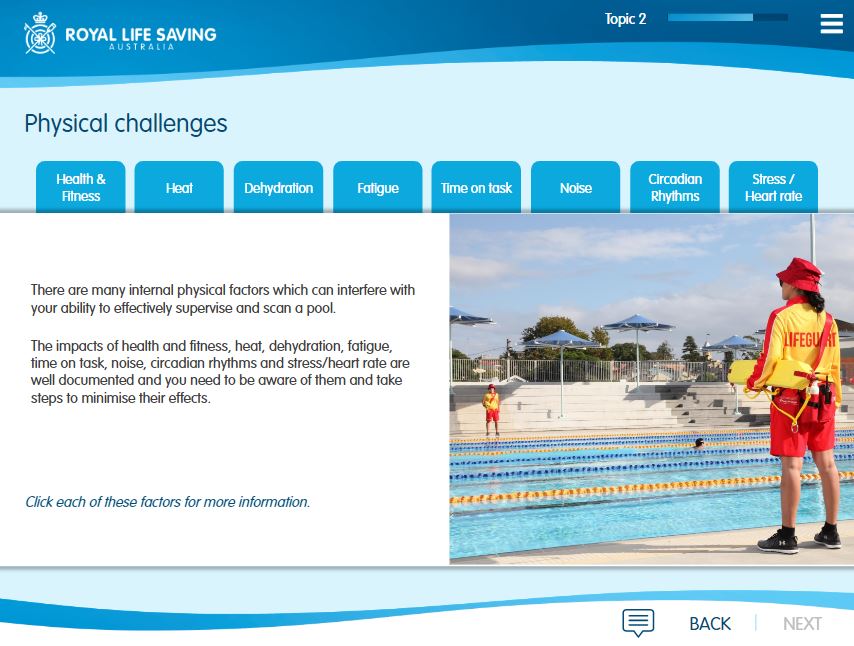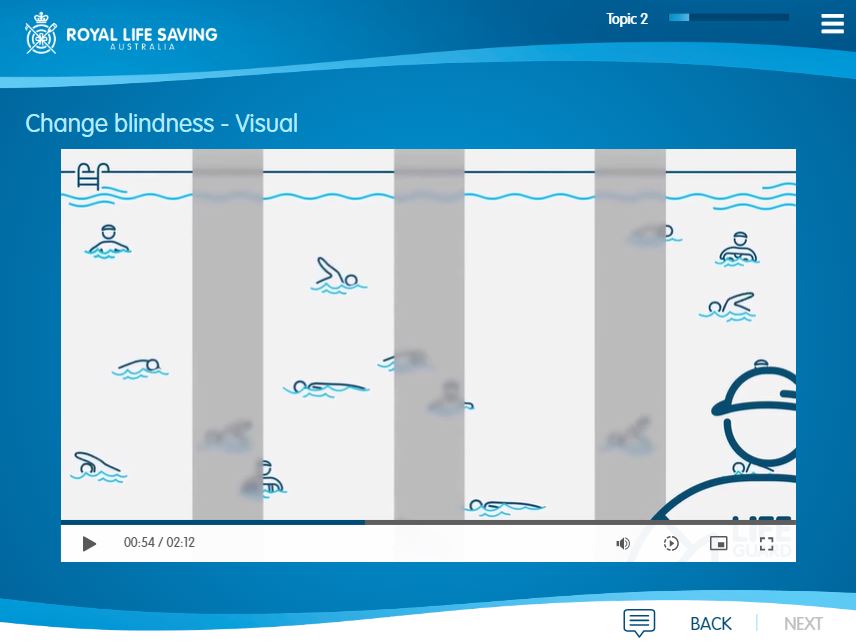Effective supervision by Lifeguards is a critical preventative step in ensuring patron safety. Unfortunately, with limited time for training and ongoing professional development it is often overlooked in favour of focusing on rescue and emergency response skills. While we can all understand why, this situation is not ideal.

This online learning module combines latest research with the hands-on experience and expertise of Royal Life Saving Lifeguards and Lifeguard trainers to provide a learning experience that covers ground-breaking, technical content in a highly engaging and easy-to-digest format. The module is targeted at Lifeguards with a degree of experience that are looking to evaluate and extend their current knowledge and skills as well as meet their professional development obligations.
It will:
- ask Lifeguards to reflect on their knowledge, skills and training so far.
- ask Lifeguards to analyse their experiences supervising a pool and the internal and external challenges they have faced.
- define these challenges, familiar and unfamiliar, and explain why they exist.
- provide a range of strategies and solutions to overcome these challenges and outline a range of best practice techniques; some of which should be known to Lifeguards and others which will be new and can be added to their skill set.

The module features a highly visual design and includes a range of animated and image-based video presentations, along with visual exercises to complete and regular knowledge prompts and checks.
Topic 1 enables Lifeguards to review and reflect on their initial training and current skills, while Topic 2 takes a deep dive into how vision, cognitive processing, attention, memory, and physiology work together, or don’t work together, to impact effective supervision.

Completion of the module should contribute to meeting the requirements for annual in-service training for Lifeguards as set out in the Guidelines for Safe Pool Operations (GSPO) – Aquatic Supervision. We strongly encourage Lifeguards and those responsible for managing Lifeguards to do this course.
Contact your local Royal Life Saving State and Territory Member Organisations (STMOs) to find out more about these courses and availability in your local area.
Note that Royal Life Saving Society – Australia National Office is NOT a Registered Training Organisation (RTO). All nationally recognised training is delivered by Royal Life Saving STMOs.
